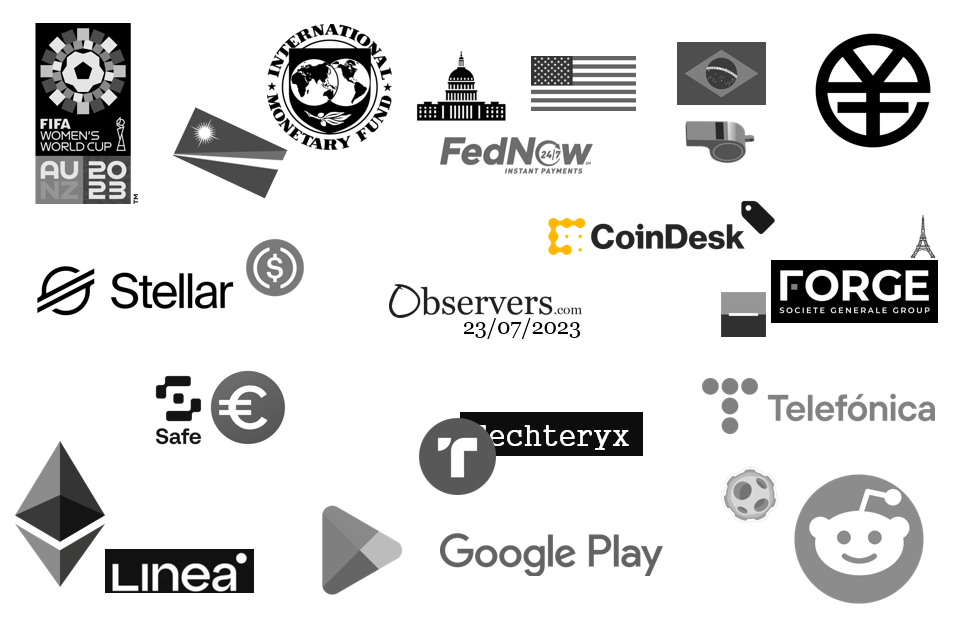
The FIFA Women's World Cup in New Zealand and Australia started on Thursday, with both host countries winning their opening matches on day one. Reigning champions USA also came out guns blazing with a 3-0 win over Vietnam on Saturday, but pity poor Zambian goalkeeper, Catherine Musonda, who saw Japan put five goals past her and then got sent off in injury time.
But who are the winners and losers in the crypto world this week? Better read through our Sunday Review and find out.
The IMF has been making itself heard from the terraces this week, first berating the Marshall Islands for its crypto-positive FinTech initiatives, then telling the whole world that it needed clearer policies to regulate crypto (and preferably those it specified). One country in dire need of clear crypto regulation is the U.S. and as luck would have it a 'comprehensive' crypto act was reintroduced to the Senate this week.
Staying in the U.S., the Federal Reserve finally launched the FedNow instant payments service, while the Bank of Korea mulled improvements to South Korea's 22-year-old equivalent. Meanwhile in Europe, the issuers of the EURe digital token were too busy enabling direct transfers between Safe crypto wallets and SEPA bank accounts to care about such antiquated concepts.
On a similar note, Stellar has been steadily pushing new fiat/crypto bridges using USDC: direct transfers to bank accounts in Latin America, and cashing out to fiat in MoneyGram locations in Africa. The Stellar token pumped on the news, as did the r/CryptoCurrency subreddit's community reward token, MOON, when news spread that it could officially be traded externally.
Brazilians have been in uproar as controls to freeze wallets and remove their tokens have been found in the country's CBDC source code. No such uproar in China, which has been pushing to extend the use of its digital yuan for cross-border transactions. Of course, most people just take it for granted that the Chinese government will have given itself such controls.
Talking control, or rather taking control, as mysterious owners Techteryx did of the TrueUSD stablecoin, taking it from being one of the most transparent to one of the least. We know so little about the company that we can't even be sure if Justin Sun owns it. We do know however, that Justin Sun isn't involved in the rumored $125 million CoinDesk buyout... probably.
ConsenSys recently unleashed its zero-knowledge (the technology, not the lack of knowing anything) Ethereum scaling chain, Linea, offering a curated Web3 experience at 1/15 of the price of Ethereum Layer 1... and SG FORGE became the first DASP to be licensed by the French AMF, which is nice for it.
Spanish telecoms giant Telefonica set up a new Innovation arm, adding artificial intelligence expertise to its already established experiments in blockchain. Finally, circling right back to clearer blockchain policies, the Google Play store introduced a new set of rules for blockchain-based content, which gained it quite a bit of kudos with the crypto crowd.
